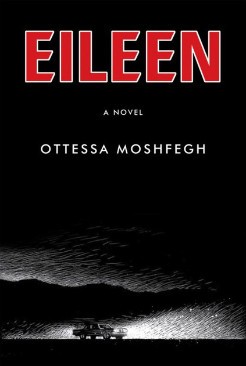1964
I looked like a girl you’d expect to see on a city bus, reading some clothbound book from the library about plants or geography, perhaps wearing a net over my light brown hair. You might take me for a nursing student or a typist, note the nervous hands, a foot tapping, bitten lip. I looked like nothing special. It’s easy for me to imagine this girl, a strange, young and mousy version of me, carrying an anonymous leather purse or eating from a small package of peanuts, rolling each one between her gloved fingers, sucking in her cheeks, staring anxiously out the window. The sunlight in the morning illuminated the thin down on my face, which I tried to cover with pressed powder, a shade too pink for my wan complexion. I was thin, my figure was jagged, my movements pointy and hesitant, my posture stiff. The terrain of my face was heavy with soft, rumbling acne scars blurring whatever delight or madness lay beneath that cold and deadly New England exterior. If I’d worn glasses I could have passed for smart, but I was too impatient to be truly smart. You’d have expected me to enjoy the stillness of closed rooms, take comfort in dull silence, my gaze moving slowly across paper, walls, heavy curtains, thoughts never shifting from what my eyes identified—book, desk, tree, person. But I deplored silence. I deplored stillness. I hated almost everything. I was very unhappy and angry all the time. I tried to control myself, and that only made me more awkward, unhappier, and angrier. I was like Joan of Arc, or Hamlet, but born into the wrong life—the life of a nobody, a waif, invisible. There’s no better way to say it: I was not myself back then. I was someone else. I was Eileen.
And back then—this was fifty years ago—I was a prude. Just look at me. I wore heavy wool skirts that fell past my knees, thick stockings. I always buttoned my jackets and blouses as high as they could go. I wasn’t a girl who turned heads. But there was nothing really so wrong or terrible about my appearance. I was young and fine, average, I guess. But at the time I thought I was the worst—ugly, disgusting, unfit for the world. In such a state it seemed ridiculous to call attention to myself. I rarely wore jewelry, never perfume, and I didn’t paint my nails. For a while I did wear a ring with a little ruby in it. It had belonged to my mother.
My last days as that angry little Eileen took place in late December, in the brutal cold town where I was born and raised. The snow had fallen for the winter, a good three or four feet of it. It sat staunchly in every front yard, rolled out at the lip of every first-floor windowsill like a flood. During the day, the top layer of snow melted and the slush in the gutters loosened a bit and you remembered that life was joyful from time to time, that the sun did shine. But by afternoon, the sun had disappeared and everything froze all over again, building a glaze on the snow so thick at night it could hold the weight of a full-grown man. Each morning, I threw salt from the bucket by the front door down the narrow path from the porch to the street. Icicles hung from the rafter over the front door, and I stood there imagining them cracking and darting through my breasts, slicing through the thick gristle of my shoulder like bullets or cleaving my brain into pieces.
